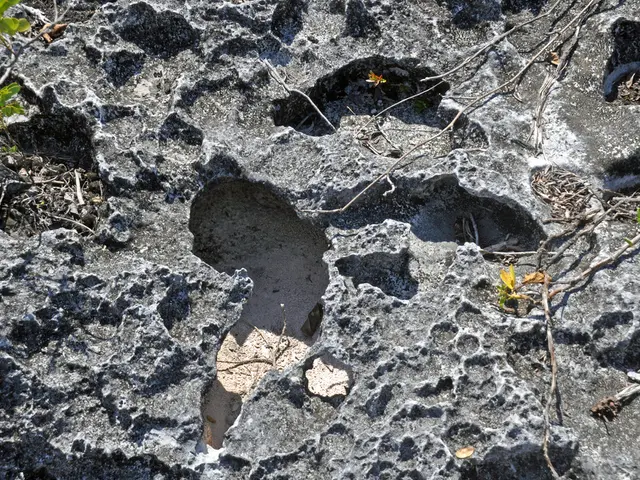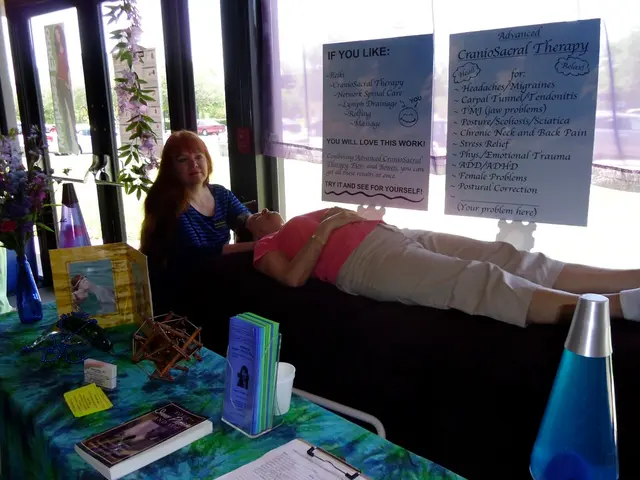Over a hundred and fifty abused women, who were sexually exploited, gained their freedom in Spain. - Over 150 women previously trapped in sexual exploitation regain their freedom in Spain
In a significant development, Spanish authorities have dismantled a human trafficking ring that targeted vulnerable women, primarily from South America, for forced prostitution in popular holiday resorts. The operation, which took place in July 2025, resulted in the rescue of 162 women and the arrest of 37 suspects across seven provinces[1].
The trafficking ring, which operated via refurbished properties disguised as massage parlours, was found across several provinces popular with tourists, including Valencia, Alicante, Barcelona, Málaga, Murcia, and Tarragona[1]. The women were lured into Spain under false pretenses, often through deceptive job offers in beauty salons and cleaning services, both within the country and abroad, primarily from countries like Venezuela and Colombia[1].
The lucrative nature of sex trafficking in tourism hotspots is linked to Spain's booming tourist industry, where high demand for sexual services is facilitated by hotels and accommodation sectors with complex supply chains reliant on short-term, low-paid workers vulnerable to coercion[4]. The investigation involved extensive raids, seizure of €141,000 in cash, vehicles, real estate, and dozens of bank accounts, providing judicial evidence of financial crimes such as money laundering linked to the trafficking network[1].
The operation followed on from earlier efforts, as a similar large-scale dismantling occurred in February 2025 against a ring trafficking over 1,000 women, underscoring an ongoing police focus on this issue in Spain[1]. Spanish authorities are now working on multiple fronts, including law enforcement targeting criminal networks, judicial actions including freezing assets and investigating money laundering, and specialized agencies monitoring labor and immigration-related vulnerabilities in the tourism sector[1].
Collaboration between police, tax agencies, and social services is vital to disrupt trafficking operations and support victims. Broader awareness about the vulnerabilities within tourism's labor market and accommodation sector is emerging, with companies such as International Airlines Group acknowledging the risk of modern slavery within their supply chains and committing to oversight and risk management focused on labor exploitation and trafficking in tourism-related industries[4].
The ongoing police operation continues, with investigations focusing on potential money laundering activities. More than 60 bank accounts and numerous assets have been frozen as part of the investigation. The victims lived in appalling conditions and had little freedom, often being locked in and monitored around the clock. Many of the rescued women did not have residence or work permits in Spain.
The operation is a testament to the seriousness of the trafficking problem in holiday resorts and the complexity of eradicating it, requiring sustained enforcement, victim support, regulatory oversight, and international cooperation[1][4]. Further study into prevention measures, victim rehabilitation, and international trafficking networks would deepen understanding of this issue.
- The Spanish authorities, recognizing the complexity of the human trafficking problem, are strengthening their employments policies to ensure vigilance against false job offers, particularly in sectors like beauty salons and cleaning services, as highlighted in the community policy.
- In response to the dismantling of a human trafficking ring, several high-profile companies in the health-and-wellness industry, such as International Airlines Group, are elevating their focus on labor exploitation and trafficking in tourism-related industries, prioritizing transparency and oversight within their supply chains.
- The ongoing investigation into the human trafficking ring has revealed significant connections between the illicit operation and financial crimes, including money laundering. As a result, Spanish authorities are taking steps to implement stricter regulations in the science of financial investigation, to better combat such activities in the future.




